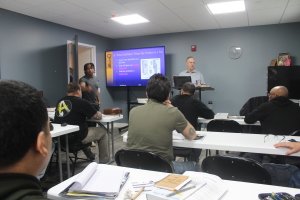Jodi Arias Sentencing Retrial Update: Court Reveals Why Arias Refused to Testify in Public
Testimony has resumed in the sentencing retrial of convicted murderer Jodi Arias after a weeklong break.
On Tuesday, the Arizona Court of Appeals confirmed that Arias was the mystery witness in her sentencing retrial who demanded that she be allowed to plead for life in private. As a result, Maricopa County Judge Sherry Stephens closed her courtroom to the public and to the media, but the appellate court ordered Judge Stephens to let the witness testify in public.
The appellate court explained what happened during the secret hearing that preceded the secret testimony.
"Her lawyer stated that Arias would not testify because the media coverage of her testimony would affect her ability to think and answer questions in a manner 'she truly means' to 'fully actualize her mitigation,'" the appellate ruling says.
"Specifically, counsel stated that Arias was receiving threatening mail, including death threats, and as a result, Arias did not feel she would be 'able to fully communicate what she wants to say, communicate her remorse and go through all the mitigating factors and get them out there in front of the jury with the public here,'" it continued.
The Court of Appeals sided with the media and found that there was no "clear and present danger" to Arias' right to a fair trial by forcing her to testify in public about why she should be spared the death penalty, according to AzCentral.com.
"While we do not discount the volume or nature of Arias' mail or the fact that some people may wish her ill, her concern does not, as a matter of law, amount to an extremely serious substantive evil warranting closing the trial to the public and the press," Judge Maurice Portley wrote in behalf of the Court of Appeals.
Meanwhile, Arias' defense lawyers are citing another case in an attempt to spare Arias from the death penalty. They took note of the recent developments in the case of Debra Milke, a woman convicted of killing her young son whose charges were recently dismissed due to "egregious prosecutorial misconduct."
Milke spent 23 years on Arizona's death row, but the federal appeals court threw out her conviction and death sentence because the original prosecutor's failed to disclose evidence that might have helped Milke's defense team challenge the detective who claimed she had confessed to him.
"The correlation between the misconduct in the Milke case and the misconduct that has infested [Arias'] own case should be highly instructive to this court as the patterns of State conduct are eerily similar," wrote Arias' defense team in its Sunday motion.





























